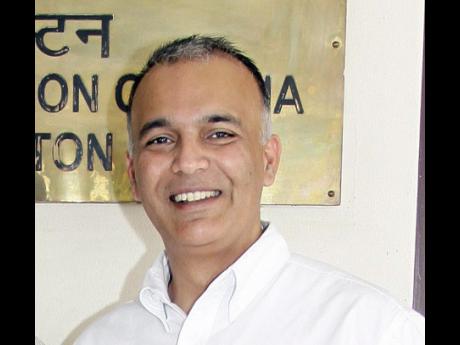Empowering children - one debate at a time
Words, they are powerful, omnipotent and can change courses - of situations, lives and history -- the glory list can go on and on, but like a precious commodity they need to be used sparingly, appropriately and carefully - as Arundhati Roy, Indian author said, "That's what careless words do. They make people love you a little less."
In this case, it is all about spreading love and Debate Mate Jamaica (DMJ), which is a sister organisation of Debate Mate United Kingdom, is hoping to empower students with a unique approach.
"Debate Mate has been combating high child poverty while promoting youth empowerment in Jamaica for the past four years," said Cindy Ma, executive programme director, Debate Mate. "The charity does this using a unique and innovative approach to create greater chances of upward social mobility among young people from challenging socio-economic circumstances across the island. Using this approach, the exhilarating intellectual sport of debating is taught to students attending schools in deprived communities."
According to the organisation, the objective is, through debating, help students develop 21st century skills, which are critical for optimal functioning in a globalised, competitive and data-driven economies.
These skills include critical thinking, where students learn to reason well challenging fallacies and constructing sound propositions; conflict resolution, where they learn to "talk it out and not fight it out"; empathy, debating for views they don't believe in themselves cause them to better appreciate experiences 'in other people's shoes'; coupled with confidence, teamwork, leadership and effective communication.
In Jamaica, four staff members - one manager and three programme directors - are working to expand the footprints.
"We have 54 university students, who have background in debating, and have been trained as mentors," informed Margot Jameson, fundraising manager, Debate Mate Jamaica. "They go around 24 schools across Jamaica - in Kingston, Ocho Rios, Montego Bay and Negril to train students."
According to Jameson, through debating, these students have shown marked improvement in overall communication skills, confidence levels, critical thinking and speaking skills.
CONFIDENCE TO COMMUNICATE
"Debating is giving them confidence to communicate and helping them to articulate," she said.
The Ministry of Education (in Jamaica) is attempting to fill the gap between the traditional question of "Do you know it?" to " How well can you use what you know?", which is the catalyst to replace GSAT with the Primary Exit Profile (PEP) assessment series.
The DMJ programme, according to Jameson, helps support both the student and teacher development needed, to reach the best outcome that PEP is designed to achieve.
According to her, DMJ is even more important for students currently attending High Schools in volatile communities, who are not likely to be exposed to the PEP approach that is being introduced at the Primary level.
"We believe DMJ is the best opportunity for these high school students and their teachers to develop critical thinking skills, and move closer to answering" How well can you use what you know?" she said.
"Our programme's main criterion is to enforcing critical thinking, conflict resolution, communication and confidence," Ma said. "These are necessary to attain best results in PEP."
Students who have been a part of the programme by the end of a single academic year, have shown tremendous improvement in communication, grit, reasoning and overall discipline and confidence.
"These same students have been noted to do better than their non-Debate Mate peers academically; many of our Debate Mate students go on to be top performers in their school for the CXC CSEC examinations," a DMJ communique said. "The vast majority of students who participated in the Debate Mate Jamaica programme have seen significant improvements in their 2017 over their counterparts who sat these exams in 2016. In many instances the 2017 cohort improved upon the previous years' examination results by upwards of 90 per cent."
EXPANDING FOOTPRINTS
The organisation is spreading its wings across other countries in the world. This summer, mentors from various Debate Mate offices are delivering three-week in Nepal and Rwanda.
"This year, we returned to Samata Schools in Nepal and the Uyisenga Ni Imanzi school network in Rwanda to reach some of the most vulnerable young people in Kathmandu, Pokhara, Bhaktapur, Kigali, and Rubavu," DMJ communique informed.
Since 2010, Debate Mate has partnered with Samata Schools, which charge only 100 rupees (roughly US $1) a month, to provide a stable education for some of the most disadvantaged children in the country.
Debate Mate has worked with over 2000 students in Samata Schools across Nepal, helping them to improve their fluency in English, their confidence, and their employability skills.
The organisation is working with Uyisenga Ni Imanzi (UNM) since 2017 to deliver training to young people in Rwanda whose families have been affected by the genocide and/or HIV.
This year Debate Mate will be working with secondary school and university students in Kigali and Rubavu to develop leadership and mentoring skills among young people.
In a robotic and AI driven world, with interpersonal interactions restricted between the fingers and touch screens of the 'smart' devices, it is critical to recognise the human to human, and even more crucially, the humane interactions end of the day word power will and does rule.




